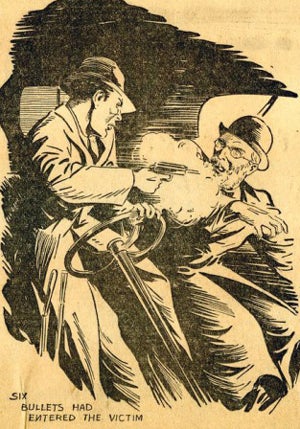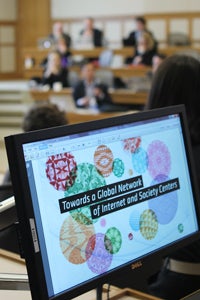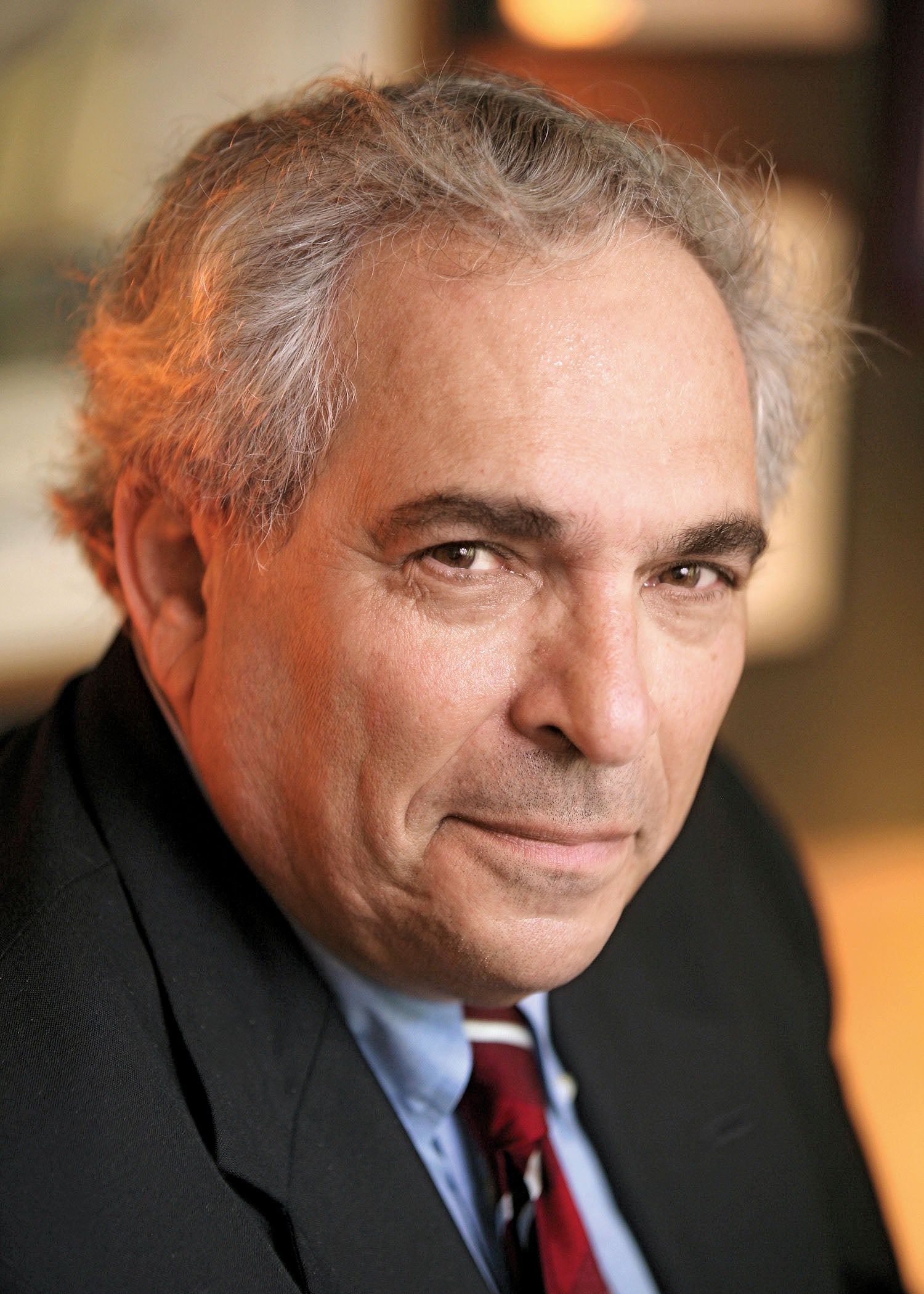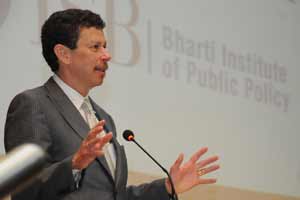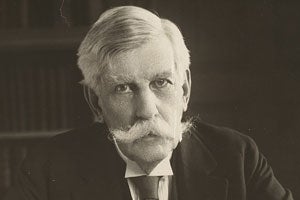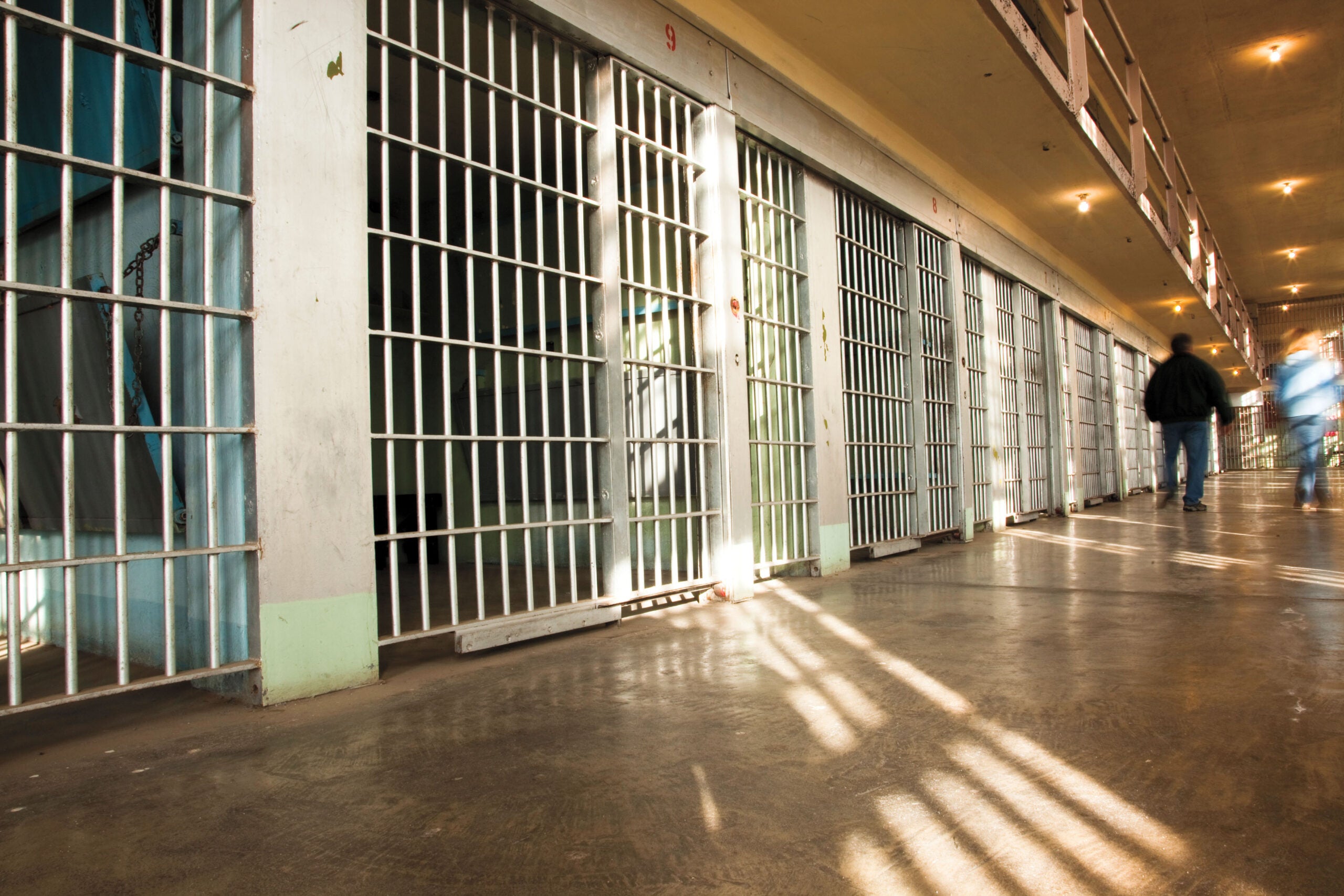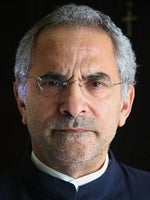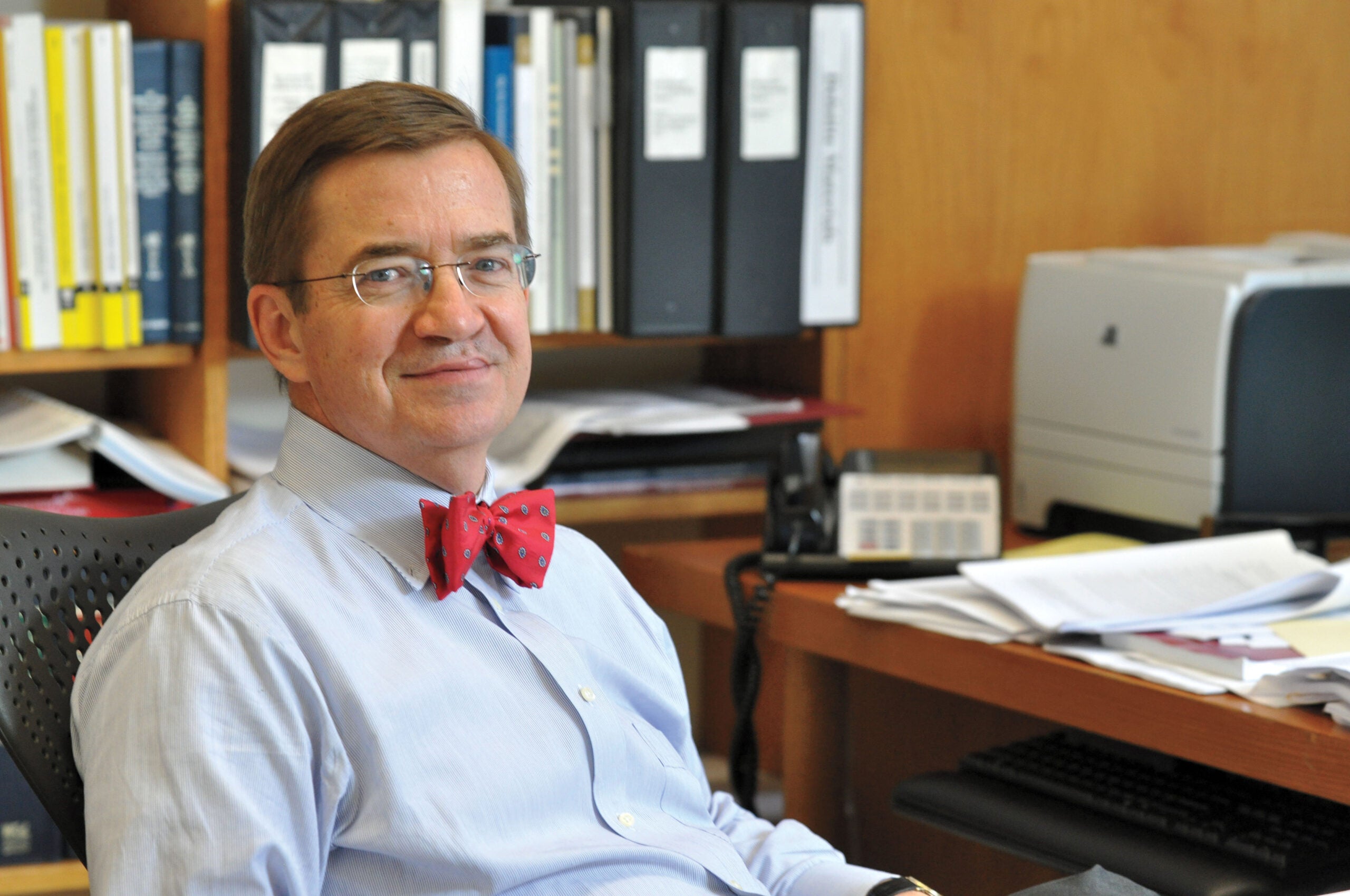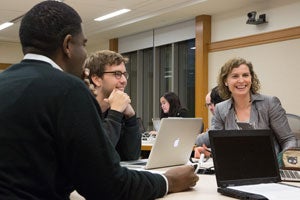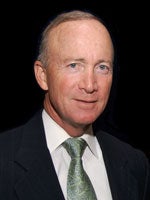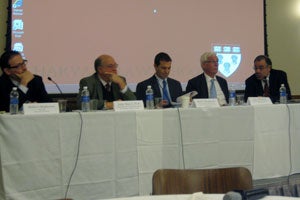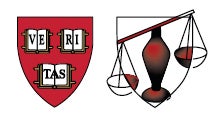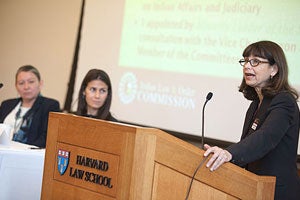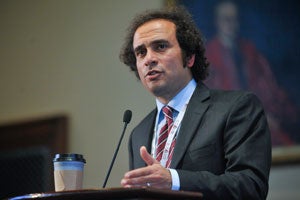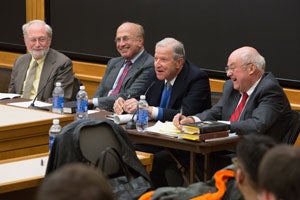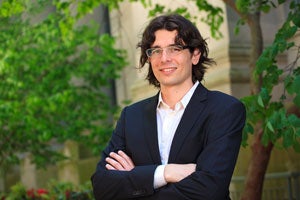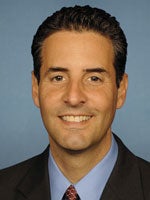Themes
Teaching & Learning
-
HLS students help student startups, at Harvard and MIT
January 23, 2013
The Harvard Law Entrepreneurship Project is the newest of 11 Student Practice Organizations at Harvard Law School and is providing free legal research and analysis for student-founded startups at Harvard and MIT.
-
HLS Library tells ‘A Tale of True Crime’
January 23, 2013
On Jan. 11, the Harvard Law School Library announced the opening of a new exhibit titled “Extra! Extra! Read All About It: A Tale of True Crime.” Featuring materials from the library’s Historical & Special Collections, the exhibit examines a short chapter in the United States’ history of true crime narratives, covering topics such as serialized true crime literature, crime photography in newspapers, and new angles on the media coverage of the Sacco and Vanzetti case.
-
Symposium at HLS marks launch of global network of interdisciplinary centers focused on the Internet and society
January 14, 2013
On Dec. 6-8, 2012, the Berkman Center for Internet & Society, together with seven international co-organizers, hosted a symposium at Harvard Law School titled Internet-Driven Developments: Structural Changes and Tipping Points, convening representatives from Internet and society research centers spanning 5 continents and 22 countries.
-
HLS program gathers leaders in Rio de Janeiro to explore financial issues affecting Brazil and the U.S.
January 8, 2013
Professor Hal Scott, director of the Harvard Law School Program on International Financial Systems, recently gathered public and private sector financial leaders from Brazil and the U.S. to examine issues affecting the financial relationship between the two countries.
-
Conference explores the future of corporate business in India
December 18, 2012
On Dec. 11, Harvard Law School’s Program on the Legal Profession (PLP) and the Indian School of Business (ISB) co-hosted a major international conference on the future of corporate business in India and the role of the legal profession. The event was held at the ISB campus in Hyderabad, India.
-
Holmes’ suite home: Law library launches massive database on famed American jurist
December 14, 2012
In a first for the Harvard Law School Library, the Oliver Wendell Holmes Jr. Digital Suite, which went live on the web Dec. 11, aggregates multiple archival holdings into a single, hyperaccessible digital suite that anyone with a computer can search, browse, and tag.
-
Stand Up for Their Rights: Representing prisoners and training lawyers for 40 years
December 6, 2012
Created in 1971, the Harvard Law School Prison Legal Assistance Project may be the only law school organization in the country to handle such a wide variety of inmate needs. It also plays a unique role in the lives of HLS students.
-
Nobel Peace Prize Laureate joins IGLP Honorary Council at HLS
December 6, 2012
The Institute for Global Law and Policy (IGLP) at Harvard Law School recently welcomed Nobel Peace Prize Laureate and former President of the Democratic Republic of Timor-Leste José Manuel Ramos-Horta to the IGLP Honorary Council.
-
Stephen Shay: Reforming tax expenditures alone won’t fix the deficit
December 6, 2012
In recent debates over reducing the budget deficit, even politicians adamant about not raising taxes have been discussing the elimination of tax loopholes, or “tax expenditures.” We turned to Professor of Practice Stephen Shay, and asked the former deputy assistant secretary in the U.S. Treasury: What are tax expenditures, and should they be repealed as a means to lower tax rates, reduce the deficit or both?
-
A Milestone But …
December 6, 2012
On the night Barack Obama ’91 was elected president of the United States, many people cried tears of joy. For many black people the tears held a special significance: They couldn’t believe they had lived to see this milestone. Yet their happiness also signified something sad about the moment, about the history of the country and about the problem of race in America that did not end with the election of the nation’s first black president, says Randall Kennedy.
-
In a hands-on workshop, students use case studies to explore information law and policy
December 5, 2012
Based on a workshop taught at Harvard Law School for the first time last spring by Professor Jonathan Zittrain ’95 and John Palfrey ’01, Information Law and Policy: Advanced Problem Solving Workshop (taught this fall by Visiting Professor Susan Crawford) presents students with several case studies and asks them to complete team exercises, which include conducting negotiations, writing legal briefs, and drafting policies and legislation.
-
At Harvard Law, Indiana Gov. Mitch Daniels promotes a model for secondary education reform
December 4, 2012
At a Nov. 29 talk co-sponsored by the Harvard Federalist Society, Indiana Gov. Mitch Daniels shared his experience in leading the charge for a new law that enacted a series of secondary education reforms in Indiana last year—reforms which many observers have called the most far-reaching changes yet adopted by any state.
-
Student conference focuses on strategies for tackling corruption
November 30, 2012
On Nov. 9 the Harvard Law & International Development Society, an HLS student group, held its annual symposium, this year highlighting the increasingly global nature of anti-corruption efforts. The day-long event, “Development amidst Corruption | Developments against Corruption,” began with vivid personal narratives from the trenches: speakers included undercover agent Robert Mazur, Ombudsman of the Philippines Conchita Carpio-Morales, and El Cid Butyayan, senior litigator for the World Bank.
-
Berkman Center releases report on teens, parents and online privacy
November 30, 2012
A new report produced by Harvard’s Berkman Center for Internet & Society and its Youth and Media Project in conjunction with Pew Research Center’s Internet and America Life Project explores issues surrounding parents, teens, and online privacy in an increasingly digital world.
-
“Tribal Courts and the Federal System,” a two-day conference held Nov. 8 at Harvard Law School, was the first of its kind, bringing together tribal judges and attorneys, tribal, state, and federal government policymakers, and scholars to explore issues Indian tribal courts currently face in criminal and civil enforcement, jurisdiction, and lawmaking. The conference was sponsored by the HLS Native American Law Students Association.
-
HLS co-hosts conference on the Arab uprising
November 28, 2012
Over the course of four days between Nov. 8 and 11, at the sixth annual Harvard Arab Weekend, Arab leaders from government, business, academia, and the professions gathered at Harvard Law School and Harvard Business School to assess the impact of these changes and what may lay ahead. The event, “The Arab Up-rising: Sustaining the Spring—Avoiding the Fall,” was sponsored by the Harvard Arab Alumni Association and various Arab student organizations on campus.
-
A conversation on the legal legacy of Judge Henry Friendly (video)
November 26, 2012
On Wednesday, Nov. 14, a panel of distinguished judges and professors gathered with author David Dorsen '59 to discuss and celebrate his recent biography, entitled “Henry Friendly: Greatest Judge of His Era.”
-
IHRC report outlines concerns about ‘killer robots’
November 21, 2012
Harvard Law School’s International Human Rights Clinic and the independent human rights organization Human Rights Watch have authored a report titled “Losing Humanity: The Case Against Killer Robots.” The report, released Nov. 19, argues that governments should pre-emptively ban fully autonomous weapons because of the danger they pose to civilians in armed conflict.
-
In October, the European Court of Human Rights in Strasbourg issued two rulings bolstering the rights of persons with psycho-social disabilities. Both cases were brought by Hungarian-Slovakian disability rights activist János Fiala-Butora LL.M. ’10, an S.J.D. candidate at Harvard Law School and an associate of the Harvard Law School Project on Disability, known as HPOD.
-
The Harvard Law School Program on International Financial Systems fosters the exchange of ideas on capital markets, financial regulation, and international financial systems through its portfolio of Symposia on Building the Financial System of the 21st Century. The symposia, started in 1998, bring together senior financial leaders, high-ranking government officials, and distinguished academics from the U.S. and their counterparts from China, Europe, Japan, and Brazil each year for intensive dialogue on issues affecting international capital markets. The 15th annual Japan-U.S. symposium was held this year in Karuizawa, Japan from Oct. 24 to 26. In a Q&A, HLS Professor Hal Scott, PIFS director, talks about the symposium’s history and impact.
-
At Harvard Law, Rep. John Sarbanes ’88 makes the case against big money in politics
November 13, 2012
At a Nov. 8 talk at Harvard Law School, Representative John Sarbanes ’88 (D-MD) advocated for “grassroots democracy” funded by the people rather than by Political Action Committees and other large donors. Sarbanes is a co-sponsor of the Grassroots Democracy Act, intended to empower small donors and to free lawmakers from their dependency on big money. The event was sponsored by the Edmond J. Safra Center for Ethics at Harvard University.
